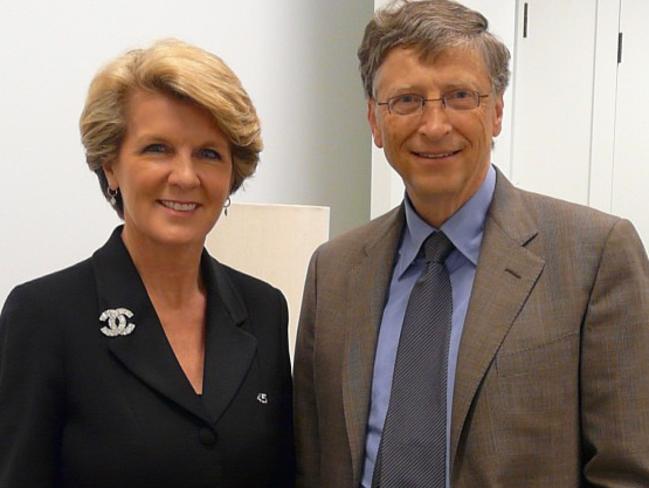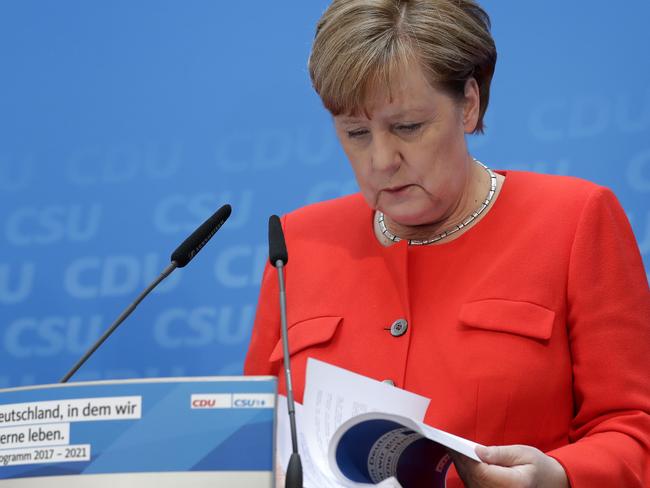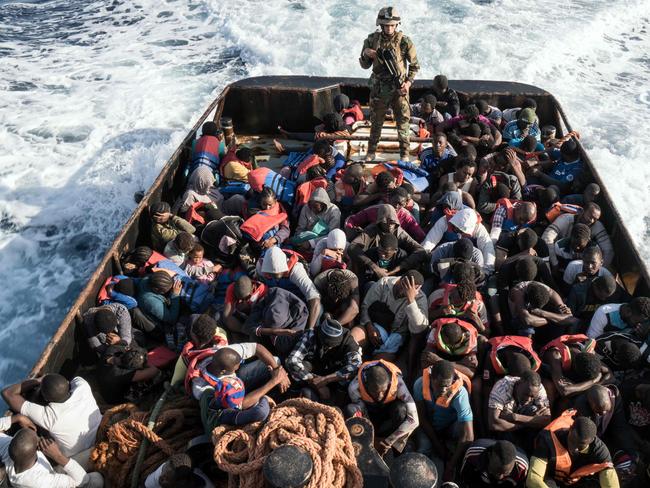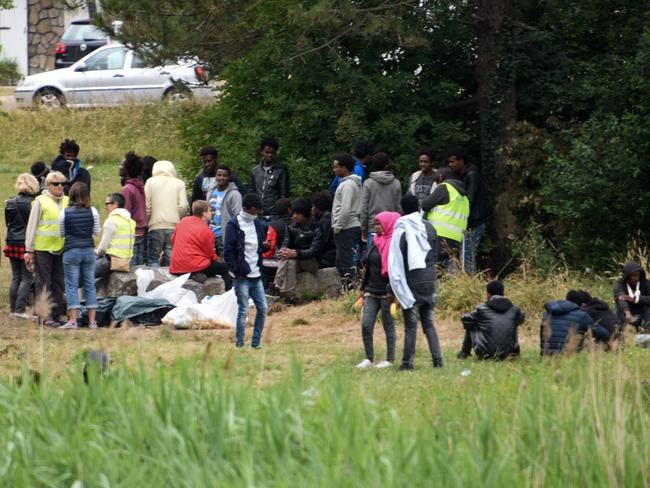Bill Gates cautions Europe on its open door immigration policy
MICROSOFT billionaire and philanthropist Bill Gates has cautioned Europe that its open-door migration policies cannot continue.
BILL Gates has warned Europe that an open door immigration policy could lead to disaster.
The Microsoft founder and one of the world’s richest men believes European leaders are making the migrant crisis worse by welcoming huge numbers of those wanting to come to the continent.
In an interview with German media outlet Welt am Sonntag and translated by Breitbart, the 61-year-old spoke of the dilemma caused by “the German attitude to refugees”.
Gates was referring to Chancellor Angela Merkel’s move to open Europe’s borders to illegal immigrants.
REVEALED: North Korea’s ‘gift to American bastards’

“On the one hand you want to demonstrate generosity and take in refugees, but the more generous you are, the more word gets around about this — which in turn motivates more people to leave Africa,” Gates said.
“Germany cannot possibly take in the huge, massive number of people who are wanting to make their way to Europe.”
Gates said Europe needed to “make it more difficult for Africans to reach the continent via the current transit routes”.
The Bill and Melinda Gates Foundation has spent millions of dollars on aid in Africa aimed at preventing poverty and disease.

Gates comments come as Italy summoned Austria’s ambassador yesterday after Vienna threatened to send troops to the border to stop migrants entering, as the number crossing the Mediterranean topped 100,000 this year.
Fresh tensions have been rising over Europe’s migrant crisis, with Austrian Defence Minister Hans Peter Doskozil saying on Monday that his country would close its border with Italy, and send soldiers to guard it, if there was no slowdown in arrivals.
While Austrian authorities said there had been no recent surge in border crossings despite the huge numbers landing in Italy, Foreign Minister Sebastian Kurz warned: “We are getting ready and will protect our Brenner border if necessary” — referring to the main mountain pass through the Alps between Italy and Austria.
The border is open as part of Europe’s Schengen passport-free zone and has seen between 15 and 40 migrant arrivals daily in recent weeks, said Helmut Tomac, police chief in the Austrian state of Tyrol.
‘UNPRECEDENTED MOVEMENT’
Italy’s Interior Minister Marco Minniti said he was “frankly surprised” by Doskozil’s threat considering “there is clearly no emergency at the Brenner Pass and cooperation with the Austrian police works perfectly”.
He slammed it as “an unjustified and unprecedented initiative” which he said would “impact security cooperation” between the two countries “if not immediately corrected”.
Announcing that arrivals had passed the 100,000 mark for 2017, the UN’s International Organisation for Migration (IOM) said nearly 2250 people had died so far this year attempting to make the perilous Mediterranean crossing.
Spain’s coastguard said Tuesday they feared another 50 or so migrants had drowned, citing survivor testimony from three “exhausted and disorientated” men rescued from a rubber boat that had initially held many more people.
Italy has taken in nearly 85 per cent of this year’s arrivals — most of them sub-Saharan Africans crossing from conflict-ravaged Libya — and has pleaded for help from other European Union nations, saying it is struggling to cope.
On Sunday, Minniti had called on EU neighbours to open their ports to rescue ships picking up migrants, after Italy issued a drastic threat to close its own ports to the boats.
But France rejected that idea, with an aide to Minniti’s counterpart Gerard Collomb telling AFP this would only encourage more migrants to set sail.

‘SHORT-SIGHTED AT BEST’
Italy, France and Germany have suggested creating a “code of conduct” to regulate the operations of privately-run rescue boats, as well as bolstering the Libyan coastguard through increased financing and training.
But the Red Cross slammed it as “short-sighted at best to think the migrant issue can be tackled by pointing the finger at those who save lives at sea and financing the coastguard of a nation like Libya that has not signed international treaties on refugees”.
The European Commission on Tuesday unveiled a new plan which envisages 35 million euros ($A52.53 million) in aid for Italy and working with Libya and other countries to stem the flow of migrants at source.
The EU should in particular help Libya better control its porous southern border and work further with other African countries — Egypt, Niger, Ethiopia and Sudan — to get them to take back their nationals, the Commission said.
The plan will be discussed by EU interior ministers meeting in Estonia’s capital Tallinn on Thursday to address the migrant crisis - the continent’s worst since World War II.
The EU put in place a policy in 2015 to distribute around 160,000 refugees across different countries.
But only about 20,000 have been relocated from Italy and Greece under the scheme, while Hungary, Poland and the Czech Republic have flatly refused to take part.
European migration commissioner Dimitris Avramopoulos called on Tuesday for EU countries to speed up deportations of failed asylum seekers to ease the pressure, but warned this needed cooperation from their home countries.
PRESSURE ON ITALY CANNOT CONTINUE
The UN figures show that between January 1 and July 3, more than 85,000 migrants landed in Italy, nearly 9300 in Greece, nearly 6500 in Spain and over 270 in Cyprus.
“We are under enormous pressure,” Italy’s Minniti said at the weekend, while the Red Cross warned the situation in overcrowded reception centres was becoming critical.

The UN’s refugee agency also weighed in, warning that Italy cannot continue absorbing tens of thousands of migrants on its own.
While the numbers arriving in 2017 are staggering, they remain far below last year’s figures.
During the same period in 2016, 231,503 people made the crossing to Europe, with the 100,000-mark passed already in February that year.
But at that time most of the migrants were crossing from Turkey to Greece, and an EU deal with Ankara in March last year effectively hit the brakes on that movement.



